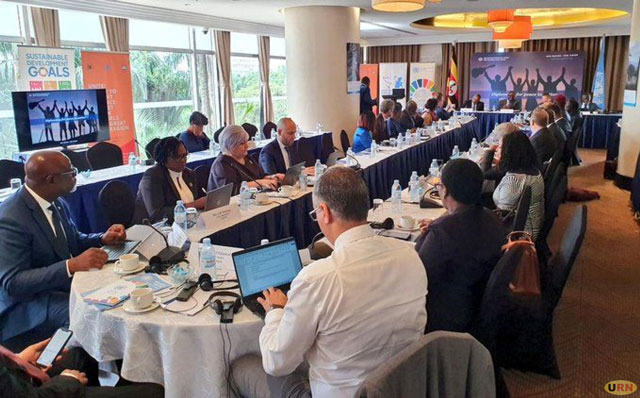
Kampala, Uganda | THE INDEPENDENT | Huang Xia, the Special Envoy of the Secretary-General of the United Nations for the Great Lakes Region, has announced a revitalized commitment by regional states to resolve the conflict in eastern DR Congo through the Peace, Security, and Cooperation Framework for the Democratic Republic of Congo and the region, initially signed a decade ago.
Speaking at the opening of the second retreat of the High-Level Political Group of the United Nations Regional Strategy for the Great Lakes Region at Sheraton Hotel, Kampala, Xia affirmed that the signatory countries have reaffirmed their dedication to adhere strictly to the framework.
“I am pleased to report the continued commitment of the signatory countries to the letter and spirit of the Framework,” he said.
Xia highlighted that the recommitment emerged from a November high-level meeting in Durban. This meeting aimed to assess the progress of the 2013 framework’s implementation and deliberate on strategies for its revitalization. Xia emphasized that the consensus-driven approach and preference for dialogue signify the potential for sustainable political solutions in the region.
The signatories to the framework comprise Angola, Burundi, Central African Republic, Congo, Democratic Republic of the Congo, Rwanda, South Africa, South Sudan, Tanzania, Uganda, and Zambia. The overseeing entities include the UN, Belgium, and the United States of America.
The framework entails commitments such as refraining from interfering in neighboring countries’ internal affairs, neither tolerating nor aiding armed groups, respecting sovereignty and territorial integrity, and denying harbor or protection to individuals accused of war crimes or under UN sanctions, among other stipulations.
However, this recommitment occurs amidst renewed clashes between the DR Congo government and the M23 rebel group. Accusations from the Congolese government, especially towards Rwanda, persist regarding the rebel activities. These escalations coincide with preparations by the United Nations Organization Stabilization Mission in the Democratic Republic of the Congo (MONUSCO) for an earlier conclusion to its 25-year mission, as directed by President Felix Tshisekedi.
The resultant conflict has led to loss of life and the displacement of hundreds, with many seeking refuge in neighboring Uganda. Vincent Bagiire, the permanent secretary in the Ministry of Foreign Affairs, seized the occasion of the SPG’s second retreat to appeal to the international community for support in accommodating up to 1.5 million refugees, a number likely to increase due to emerging conflicts in neighboring countries.
Susan Ngongi Namobdo, the UN Resident Coordinator for Uganda, emphasized that the SPG retreat aims to evaluate the progress of the Great Lakes Regional Strategy and its Action Plan (2023-2024). The gathering intends to assess ongoing strategies, identify areas for improvement, expedite initiatives, and delve into recent political, security, and humanitarian events in the region, particularly peace efforts.
“The SPG members will consider a comprehensive progress report on the UN regional Strategy’s Action Plan and its initiatives, including recommendations; discuss the upcoming steps for developing the 2024 Updated Action Plan and its budget; and review the Terms of Reference for the Great Lakes Donor Group,” Ngongi said.
****
URN
 The Independent Uganda: You get the Truth we Pay the Price
The Independent Uganda: You get the Truth we Pay the Price





